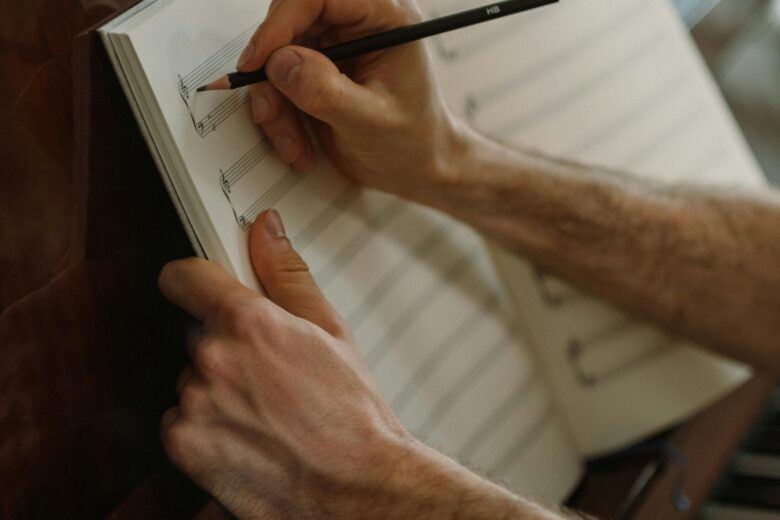Recently I went on a camping trip with my mom. My mom loves camping and is always appreciative of being in nature. This makes her a lot of fun to camp with.
When I got home from the trip, I was inspired to compose a new piano piece dedicated to her. The idea came in a flash, and I worked out most of it right then. Over the next couple of days, I made some adjustments until I was satisfied.
It gives me great joy and satisfaction to be able to write music like this. Yet I usually don’t wait for life experience to inspire me to create something. I have learned I can get down to work just about whenever I set my mind to do it. Ideas will come.
This skill is not unique to me. Skilled creators learn to trust that creativity is always available. The ability to write music is reliable and consistent for them. There’s no lack of creative ideas to explore for the creatively curious. In fact, anyone who wishes to can start creating right now by experimenting with composition skills. Doing any of these counts:
- Writing a melody
- Creating a chord progression
- Writing an accompaniment for your melody
- Editing and refining your raw inspiration into usable form
- Using a software program to notate or record musical ideas
- Writing your musical ideas down on staff paper at the piano
- Instrumentation and orchestration, if you are writing for more than just piano
I have piano students who now regularly write music but never did before working with me. I encourage them to get down to work, just as I do. The process works for them, too. The ability to compose is less about waiting for inspiration and more about creative elbow grease.
It starts with being willing.
In Chapter 12 of my book, “Play Piano: A Learner’s Guide to Reading, Playing, and Creating Music“, I share some tips for beginning composers:
Tips for Your Early Composing Efforts
- Focus on going through the process. Don’t worry about quality. In fact, it may be helpful to aim for your first efforts to be “bad.” Believe it or not, deliberately lowering your expectations may help you get work done. If you end up liking what you do, that is nice, but what matters most now is gaining experience.
- Don’t worry about length. Shorter may be better. 30 seconds, 8 measures. These still count. The point is to establish a track record of going through the process. Try to make this as easy as possible.
When learners allow themselves to go through this process, they gradually learn that it is safe to be creative. They learn to trust the process.
The possibilities from this are as vast as imagination itself.


I agree with everything Chris said. I’ve been studying composition with Chris for a few years now and I’ve found that it’s helped me in ways I never could have imagined. It’s deepened my understanding and appreciation of all kinds of music, especially classical. It’s helped me develop my ear and improved my playing by helping me get familiar with more chords and keys. Plus it’s fun, even though the compositions are mostly just for me.
I’m glad to be helping, Christie 😉 Nice job keeping at it
Doing this as we speak! (Or as we write?) It can help to get started slowly and then chip away at things throughout the day, noticing which melodies are memorable enough to stick with us between multiple sittings at the piano.
That is a great approach–slow and steady wins the race!